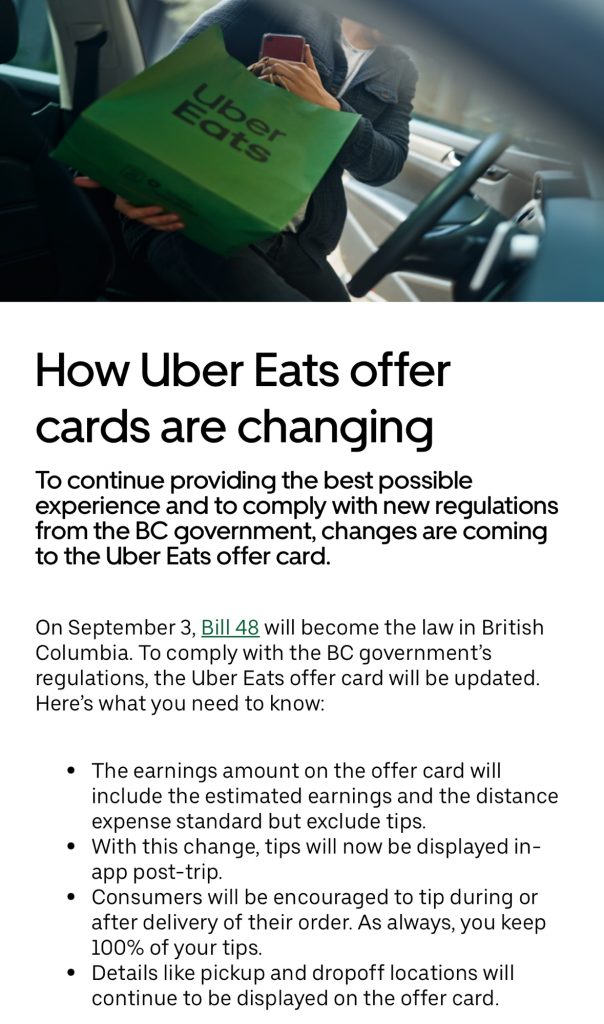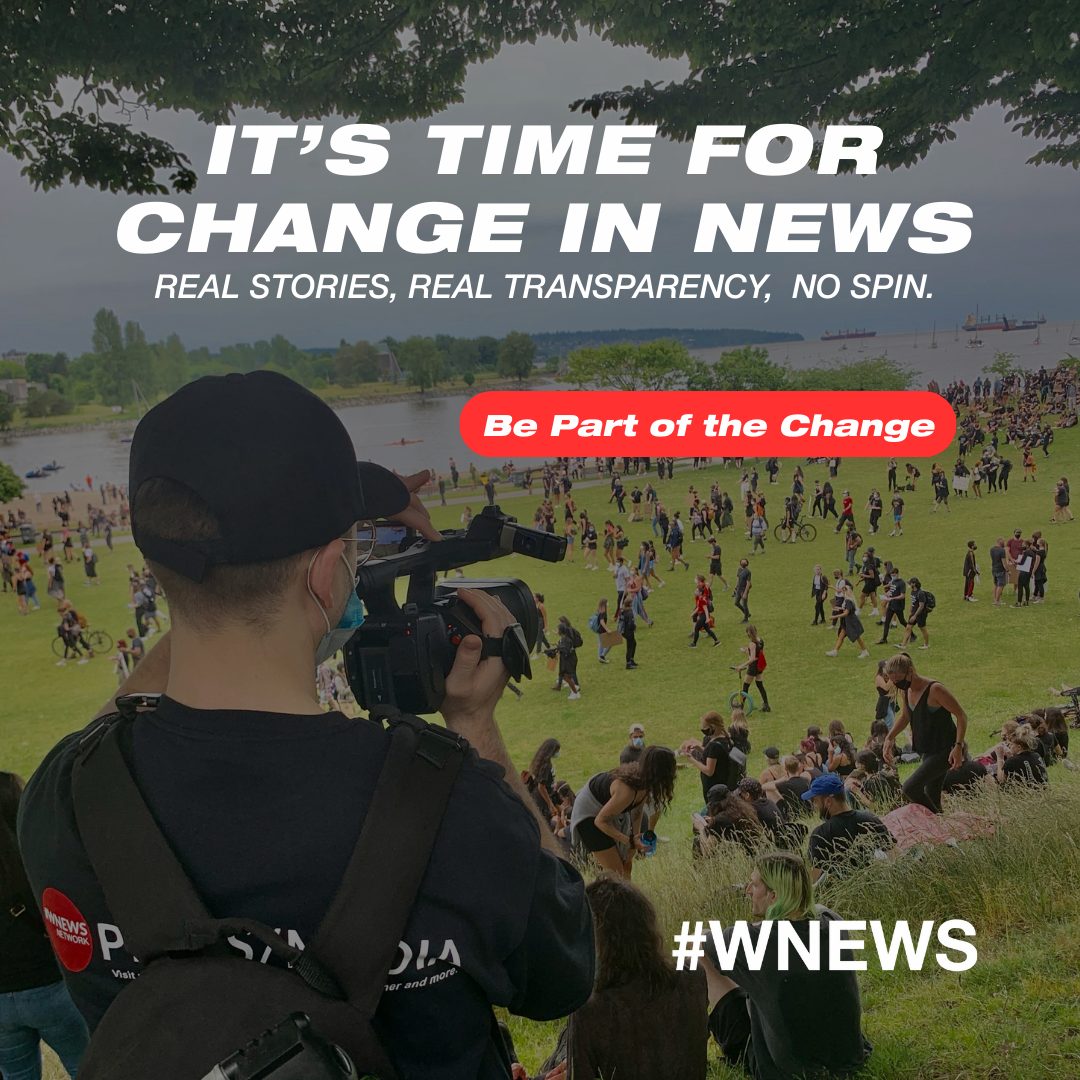Vancouver, BC (WNEWS VANCOUVER) – Starting this Tuesday, September 3, British Columbia (B.C.) will pioneer a set of regulations designed to protect the growing number of workers in the gig economy, particularly those engaged in ride-hailing and food delivery services. This move is being hailed as a significant step forward in establishing fair labor practices for app-based workers in Canada, addressing long-standing concerns about low pay and lack of benefits in the gig sector.
New Minimum Wage and Distance Allowances
Under the new regulations announced last November, gig workers in B.C. will earn a minimum wage of $20.88 per hour during “engaged time”—the time from when a worker accepts an assignment until it is completed. This rate is intentionally set at 120% of the provincial minimum wage, currently $17.40, to compensate for the periods when gig workers are on the clock but not actively engaged in a paid assignment.
In addition to the wage floor, the regulations introduce a distance expense allowance, aimed at covering vehicle operating costs. Workers will receive 35 cents per kilometer for delivery assignments and 45 cents per kilometer for ride-hailing services. This allowance is mandatory and must be paid semi-monthly, providing gig workers with consistent compensation for their travel expenses.
Comprehensive Worker Protections
The regulations also include several provisions aimed at improving overall working conditions for gig workers. For the first time, app-based workers will be fully entitled to any tips they receive, with companies prohibited from making deductions. Workers will also be covered under WorkSafeBC, ensuring that they have access to compensation and rehabilitation services in the event of a work-related injury.
Moreover, transparency is a key component of the new rules. Companies are now required to disclose the destination and estimated earnings of each assignment before a worker accepts it, enabling better decision-making for gig workers. Additionally, platforms must provide detailed wage statements that include hours worked, distance traveled, and all earnings, helping workers better understand their compensation.
Mixed Reactions and Concerns
While these changes are largely celebrated by labor advocates such as UNIFOR, they have sparked a range of responses from both workers and companies. Many see this as a critical step toward fairer treatment of gig workers, offering them some of the basic protections enjoyed by traditional employees. Pablo Godoy of the United Food and Commercial Workers (UFCW) Canada emphasized that this legislation lays down a much-needed foundation for the future organization and unionization of gig workers.
However, some gig workers express skepticism, particularly regarding the limitation of the “engaged time” concept. Critics argue that significant unpaid time remains when workers are waiting for assignments, potentially undermining the benefits of the new minimum wage. Kuljeet Singh, a Vancouver-based ride-hail driver, pointed out that the time spent waiting for ride requests still leaves many struggling to make ends meet, even with the new wage standards.
From the business perspective, companies like Uber have voiced concerns that the regulations could drive up operational costs, leading to higher prices for consumers and reduced demand for services. They argue that the new expense rates, which are significantly higher than comparable rates in regions like California, could have unintended consequences during an ongoing affordability crisis in the province.
Uber to add new $2 Service Fee to orders & Criticizes the Government’s Policies
Uber in a statement issued to DailyHive in June and in app notifications to drivers earlier today, the offer screen will display estimated earnings but exclude tips. The company also mentioned that customers will not be able to tip until after the delivery concludes.
On September 3, Bill 48 will become the law in British Columbia. To comply with the BC government’s regulations, the Uber Eats offer card will be updated. Here’s what you need to know:
• The earnings amount on the offer card will include the estimated earnings and the distance expense standard but exclude tips.
• With this change, tips will now be displayed in-app post-trip. Consumers will be encouraged to tip during or after delivery of their order. As always, you keep 100% of your tips.
• Details like pickup and dropoff locations will continue to be displayed on the offer card.” – Uber Eats Statement (August 30, 2024)
Uber Eats will now charge $2 more for each order as of Tuesday. The company said the increase is needed to offset the provincial government’s new policies.

Uber criticized the British Columbia government’s regulatory changes for gig workers, saying the province is set to drive up costs for residents and drive down demand for local businesses.
A Precedent for the Future
As the first province in Canada to implement such comprehensive regulations for gig workers, B.C. is setting a precedent that could influence labor policies across the country and beyond. The provincial government has indicated that it will continue to monitor the effectiveness of these regulations and make adjustments as necessary, suggesting that this could be just the beginning of a broader reevaluation of gig economy labor standards.
The rollout of these regulations will be closely watched by policymakers, labor groups, and gig companies alike, as it represents a significant shift in how gig work is regulated and compensated. Whether these measures will fully address the challenges faced by gig workers remains to be seen, but they undoubtedly represent a step toward greater fairness and accountability in the gig economy.
7:33 PM PT – August 30, 2024 – There was error in the date as it’s was to be reported as September 3, not September 4 as originally reported. This has since been corrected.










